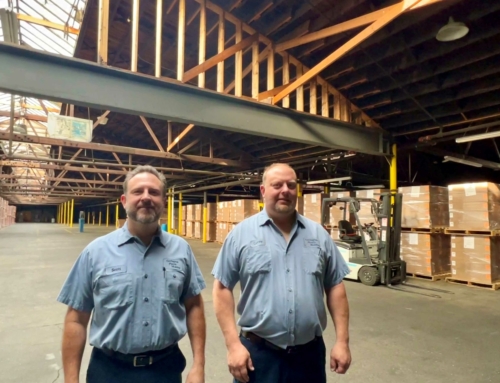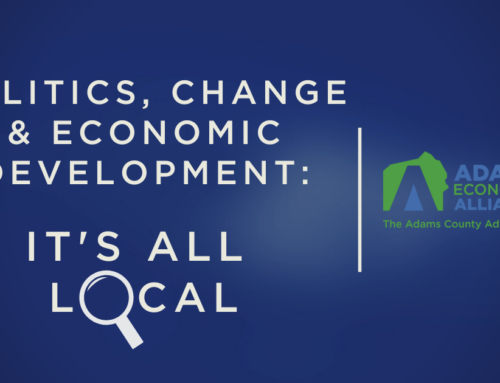Quite often, I enjoy surprising people. Not in the “Boo!” spirit of Halloween, but more in an “Oh!” kind of pleasant surprise.
Specifically, people are often surprised that Adams Economic Alliance takes a holistic approach to Adams County’s economy. We don’t focus exclusively on business or development! (Here’s where the surprising “Oh!” comes in.) Rather, we embrace all community partners touching all pieces of a healthy community puzzle, including infrastructure such as roads and utilities, quality of life including preservation and nature, all types of business including agriculture, plus services that support the county’s residents and economy—like childcare.
So it was especially rewarding for the Alliance to play a role in facilitating a low-interest loan to support a new childcare facility, Caterpillar Clubhouse, in Fairfield. (The press release is on our website, if you missed this piece of news!)
Why would the Alliance be proud to support the childcare field? First, it represents a small business, owned and operated by Melissa and Joseph Cavey, which is already employing about a dozen people and projects employment of 22 people once it scales up to full operations. Secondly, childcare is a significant cog in our economic wheel because it supports working parents! Caterpillar Clubhouse had a waiting list of families even before opening its doors. A few weeks into operations, several dozen children are being cared for, with projected capacity for 150 children.
Going a step further, it was insightful and inspiring to witness Melissa Cavey’s “can-do” attitude toward small business entrepreneurship, especially amid the pandemic. I thought others might find her positive approach to challenges, insightful:
“We were in the building process when the pandemic hit,” explains Melissa, whose loan helped renovate the former Metz Hardware store. Pandemic restrictions on construction shut down her project for about a month.
But it was obvious that she’d be fulfilling a deep need in the Adams County community. Almost immediately upon putting the word out, she had a waiting list of 30 families with a combined total of 40 children in need of child care. Through the pandemic, that number fluctuated. Still, she did not waver in staying committed to her business plans.
“Some families decided they’d be staying home with their children—they were not comfortable with sending kids to childcare, while some families found other care due to our dates being pushed back,” Melissa says.
“But we heard from many families who truly needed childcare amid the pandemic because they were working from home, but found they couldn’t work effectively with a 2-year old at home,” Melissa explains. “Additionally, infant care is hard to find in our area, so we planned for two infant rooms, to accommodate more families with babies.”
Melissa also stayed attuned to COVID-19 protocols.
“It was very overwhelming in the beginning, but it’s been that way for everyone. I sat in on webinars, listening to other daycare providers and how they were handling the regulations. One of the hardest things is that families are not allowed into the building—they can come into the lobby but not the classrooms. Also, the children can’t see our faces with coverings, but as far as children coming into a new place, so far they’ve done really well. For the most part, the kids have also adapted really well to wearing their masks—and they can take them off for recess outside.”
According to Diana Fasnacht, Ready to Learn Director at United Way of Adams County, there are 5,143 children under the age of five in the county, and only 11.6% are in quality childcare—defined as providers who have earned the state’s Keystone Stars ratings. Of those preschoolers, 56% are from households at the 300% federal poverty level or lower.
Diana tells us that the need for infant care is so great that parents typically need to sign up for care as soon as they find out they’re expecting.
Another ripple effect in the childcare situation is the high turnover rate of early childhood learning professionals—mainly due to low wages. “Yet, these professionals are so critical to consistency and support for parents and children,” Diana says.
“We just finished a project assembling 600 literacy backpacks for 3-,4- and 5-year olds, including children’s books, activity books, and information for parents about reading aloud and managing stress,” explains Diana. Please contact Diana for information about how the United Way supports early childhood learning and kindergarten professionals as well as families.
We are grateful for talented, kind people like Diana and Melissa who are working to support childcare, one of our most precious fields indeed.






